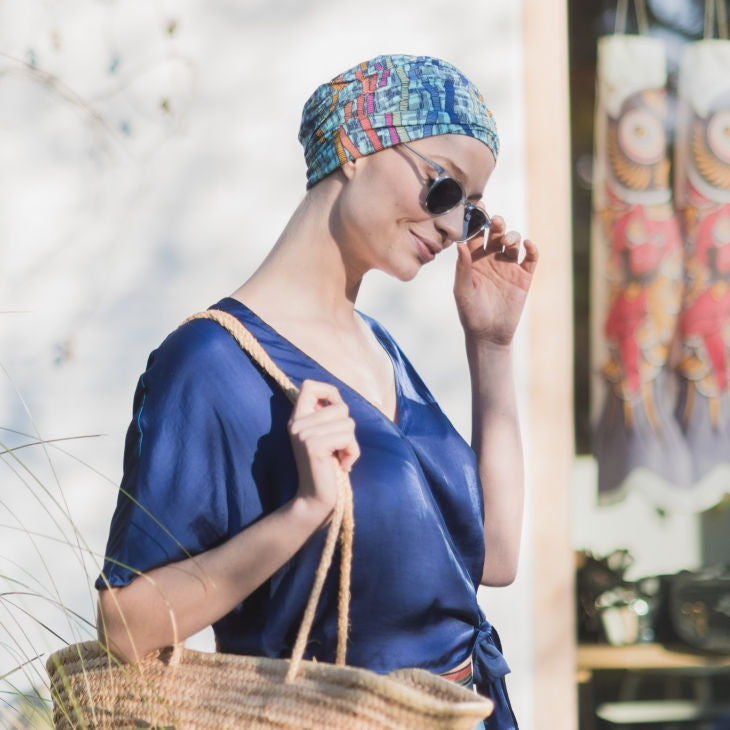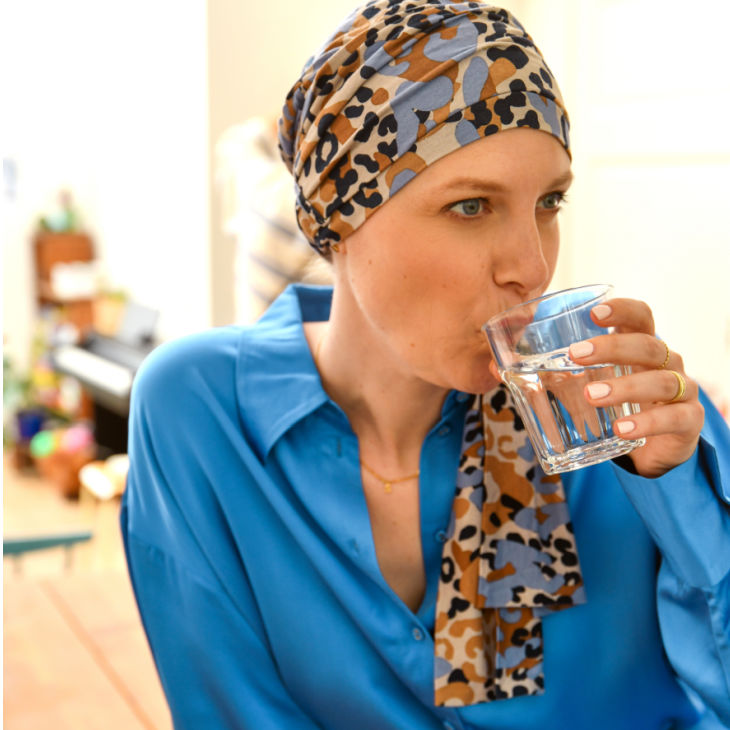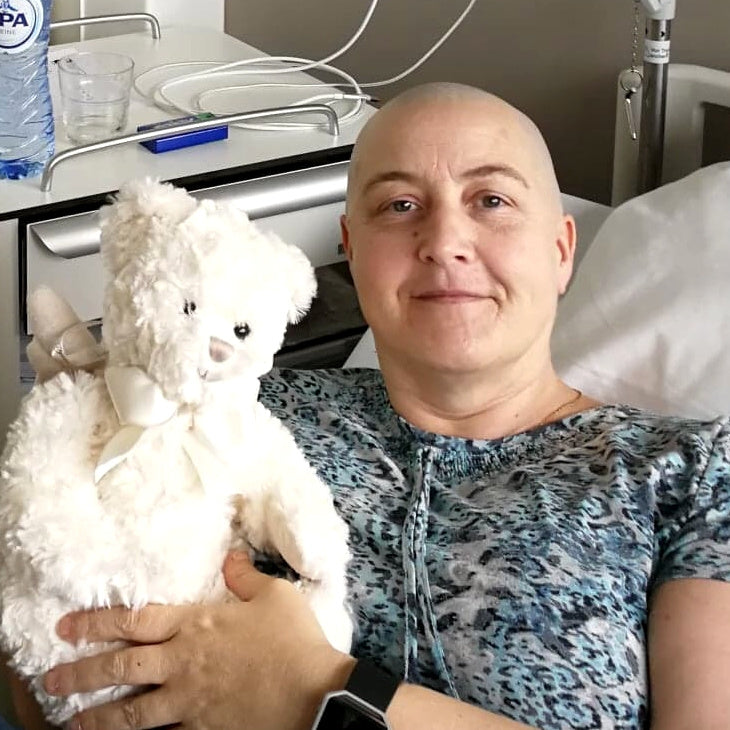We all know how often we hear that sunlight is good for us. It strengthens our bones, boosts our immune system, and brightens our mood. There’s nothing more refreshing than clear light and pleasant warmth on your skin. But is the sun really safe when you’re undergoing chemotherapy? The usual advice is “enjoy it, but in moderation.” But what does moderation mean? Why should you be careful? And how can you best protect yourself?
Chemo and the sun: why caution matters
Chemotherapy often makes your skin drier, and dry skin is also more sensitive to sunburn. On top of that, some chemo drugs contain substances that can trigger unpleasant skin reactions, such as pigmentation spots or even burns.

If your treatment falls during the sunniest months of the year, talk to your doctor or nurse and check whether the specific drugs you’re receiving allow you to spend time in the sun.
If the answer is “yes, but be careful,” make sure to protect yourself extra well. Even if you normally have a darker skin type and rarely burn, your body may react more sensitively to sunlight during chemo.

Chemo and sun: the best protection tips
- Clothing is without doubt the best way to protect your skin from the sun. Always cover your head with a chemo scarf or a chemo hat to shield your scalp.
- Looking for something ultra-light because hot flashes or sweating bother you easily? Our featherlight Audrey chemo headscarves in a cotton blend are the perfect choice!
- Do you love wearing a straw hat but find it itchy on your bald scalp? Simply slip on a featherlight sleep cap underneath or a breathable cotton bandana.
- For exposed skin (arms, legs, face …) always use a sunscreen or lotion with a high protection factor (at least SPF 30, ideally 50). Don’t skimp: apply generously and reapply every 2 to 3 hours.
- Avoid direct midday sun between 12 and 3 p.m.
- Even in the shade, protection is essential. A tree or parasol never completely blocks harmful UV rays, so cover up and reapply sunscreen.
- And don’t forget a good pair of sunglasses. Chemo or other medication can make your eyes drier and more sensitive to harmful sunlight.

These general tips on chemo and sun can never replace personalized advice from your doctor or nurse. Always ask for their guidance whenever in doubt and trust their expertise.











Leave a comment
All comments are moderated before being published.
This site is protected by hCaptcha and the hCaptcha Privacy Policy and Terms of Service apply.